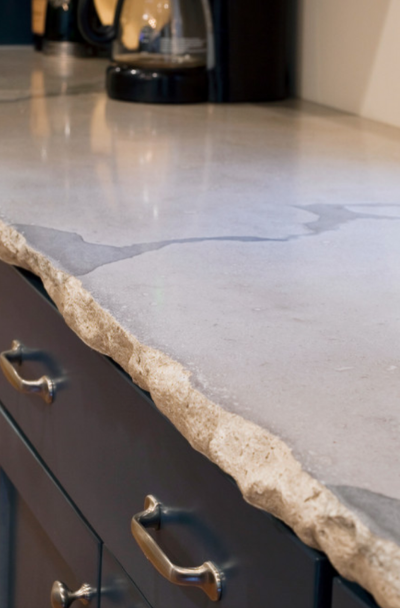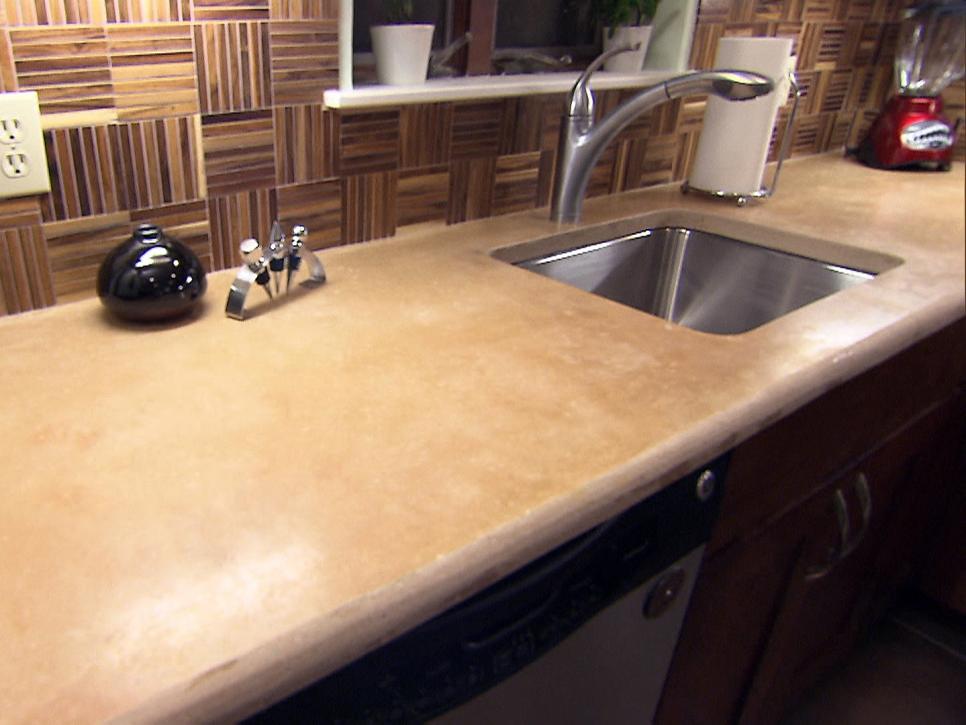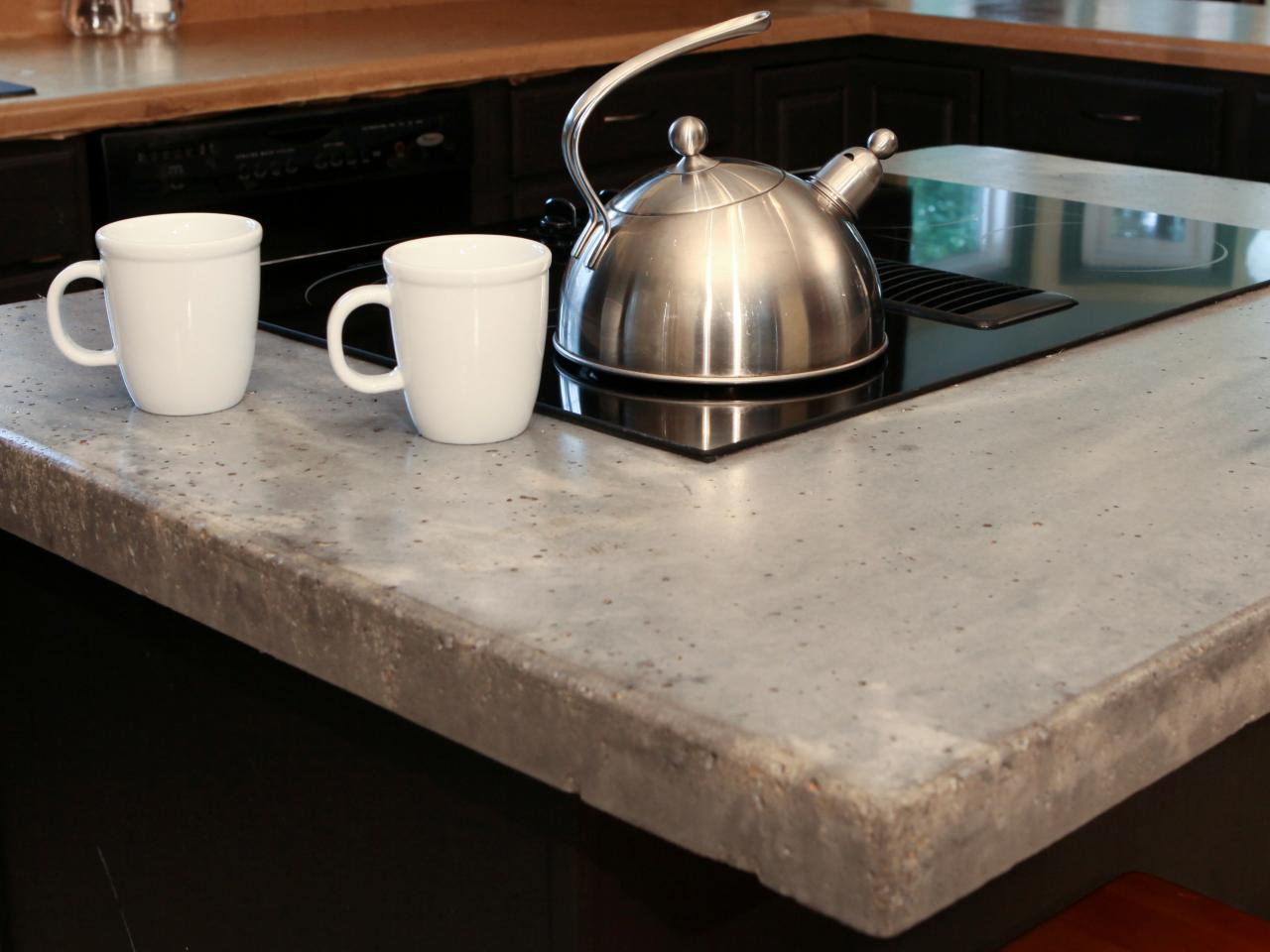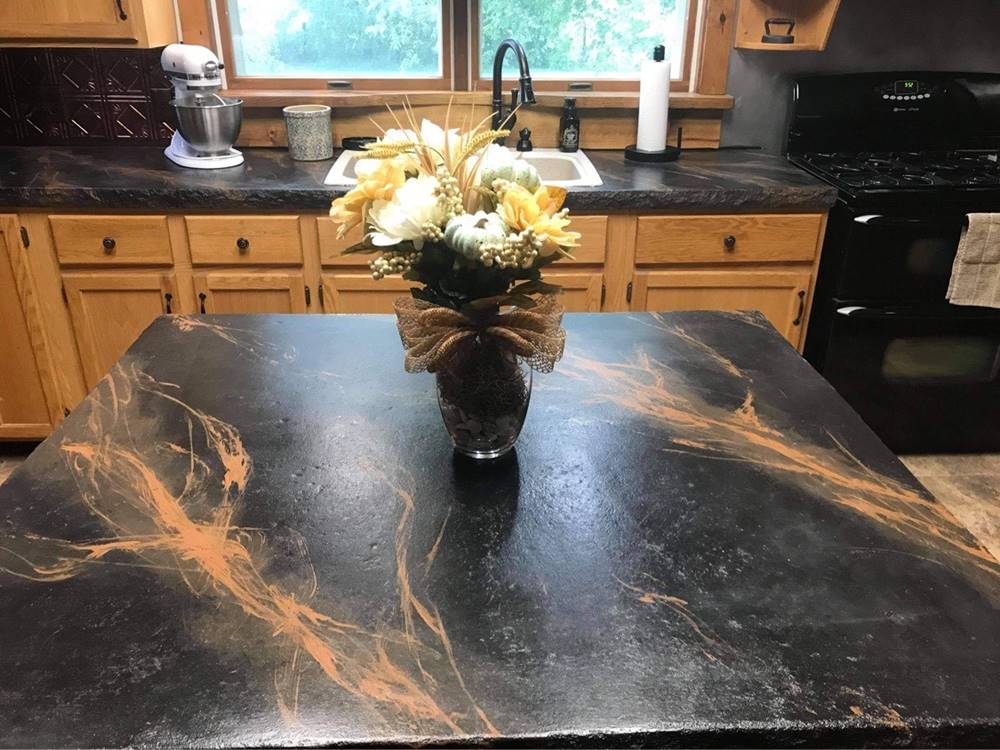Concrete countertops have emerged as a versatile and stylish option for modern kitchens, offering a unique combination of durability, customizability, and contemporary appeal. Unlike traditional countertop materials like granite or marble, concrete can be fully customized to suit any aesthetic, from sleek and modern to rustic and industrial.
Concrete countertops are made by pouring a concrete mixture into a mold, which allows for nearly limitless design possibilities in terms of shape, texture, and color. This versatility is a huge appeal for homeowners who want a truly personalized look that stands out from conventional countertop options. Concrete countertops have a natural, earthy appearance that adds warmth and character to a kitchen, transforming it from a purely functional space into a stylish and welcoming one.
One of the major advantages of concrete countertops is their inherent strength and durability. Concrete, when properly cured and sealed, is incredibly resilient and able to withstand years of use, making it a practical choice for busy kitchens. It is resistant to scratches, dents, and high temperatures, so you can confidently place hot pots and pans directly on the surface without fear of damage.
While concrete does require some maintenance to keep it in top condition, many homeowners find that the benefits far outweigh the upkeep. By choosing concrete, you’re investing in a long-lasting, durable material that can hold up beautifully under the daily wear and tear of an active kitchen.

Another key benefit of concrete countertops is their flexibility in terms of design and finish. Concrete can be colored, stained, or even embedded with materials like glass, metal, or stone for a highly individualized look. Staining is a popular technique that allows the concrete to mimic other materials, such as stone or wood, without losing its unique industrial edge.
If you’re looking for a color beyond the typical gray, concrete can be custom-tinted to match any shade, giving you complete control over the aesthetic. This ability to customize makes concrete one of the few countertop materials that can blend seamlessly into any kitchen style, from rustic farmhouse to sleek urban loft.
In terms of texture, concrete offers even more design options. The surface can be polished to a smooth, glossy finish for a sleek, modern look, or left more textured for a natural, raw appearance. Homeowners who prefer a rustic or industrial feel often choose a matte or semi-polished finish that highlights the natural imperfections of the concrete, giving it a distinctive, handcrafted appearance. These imperfections, such as slight variations in color or small air pockets, add character to the surface, making it truly unique. A polished concrete countertop, on the other hand, can have a mirror-like sheen that brings a sophisticated edge to the kitchen.

Concrete countertops are also highly customizable in terms of shape and thickness. Because each countertop is individually poured, you can choose dimensions that perfectly suit your kitchen’s layout and design. Whether you want a bold, thick countertop with a substantial presence or a slim, minimalist profile, concrete can be molded to fit your vision.
Additionally, concrete’s moldability allows for creative shapes, such as curved edges or integrated features like sinks, which can be cast directly into the countertop for a seamless, cohesive look. This flexibility is a unique benefit of concrete, as most other countertop materials come in standard shapes and sizes that limit your options.
One of the most intriguing design options with concrete countertops is the ability to create embedded details. For example, some homeowners choose to embed pebbles, shells, or glass shards into the concrete for a truly one-of-a-kind appearance. This technique adds visual interest and texture, allowing the countertop to serve as a focal point in the kitchen. Embedded materials also allow you to incorporate personal touches that reflect your style or even memories, such as beach glass from a favorite vacation spot. This customizability is hard to achieve with other materials, making concrete a fantastic choice for those who want a countertop with a story behind it.
Concrete countertops can also be enhanced with functional features that increase their usability in the kitchen. For instance, drainage grooves or built-in trivets can be integrated directly into the surface, providing convenient areas for drying dishes or placing hot pots. Integrated sinks are another popular option that adds both functionality and a sleek, uninterrupted look. These features make concrete countertops ideal for busy kitchens, where every inch of counter space is valuable and needs to serve multiple purposes. The ability to add these functional details makes concrete countertops a highly practical choice for modern homes.

Despite its many benefits, concrete does require regular maintenance to keep it looking its best. Concrete is naturally porous, which means that it can absorb liquids and be susceptible to staining if it is not properly sealed. Applying a high-quality sealer is essential to prevent water and food stains from penetrating the surface. Many homeowners also choose to apply a wax finish periodically to enhance the countertop’s stain resistance and maintain its shine. With the right sealing and care, concrete countertops can remain beautiful and functional for many years, although they do require a bit more upkeep than non-porous materials.
In terms of style, concrete countertops are incredibly versatile. They can complement both modern and traditional kitchen designs, and they work well with a wide range of cabinet styles and colors. For a contemporary look, pair concrete countertops with high-gloss cabinetry and stainless steel appliances. In a more rustic or industrial kitchen, concrete’s raw texture and natural color palette pair beautifully with reclaimed wood or exposed brick. The neutral tones of concrete also make it a great canvas for bold accessories or colorful accents, allowing you to experiment with different décor styles over time.
Another design feature of concrete countertops is the ability to achieve unique edge profiles. Unlike stone or laminate, concrete can be molded into virtually any edge style, from straight and clean to intricate or beveled designs. These edge profiles allow you to further customize the countertop to match your kitchen’s style. A thick, straight edge lends a solid, contemporary feel, while a more detailed edge can add a touch of elegance and sophistication. The ability to choose any edge profile gives concrete countertops an edge over pre-fabricated options, which typically come in limited styles.

Concrete countertops can also be a cost-effective choice, depending on the complexity of the design. While custom concrete countertops can be more expensive than some options, such as laminate, they are often more affordable than high-end stone countertops like granite or quartz. Additionally, because concrete countertops are durable and long-lasting, they are a wise investment that can enhance your home’s value over time. For those who appreciate the industrial look and want a high-end aesthetic without breaking the bank, concrete can be a financially savvy choice.
In addition to their beauty and durability, concrete countertops are also an environmentally friendly option. Concrete is made from natural materials like sand, water, and cement, which are generally more sustainable than synthetic materials. Moreover, many manufacturers now offer eco-friendly concrete options that incorporate recycled materials, such as fly ash or slag, which reduces the environmental impact of the countertop. Choosing a concrete countertop can therefore be a way to incorporate green principles into your home design, a factor that is increasingly important for environmentally conscious homeowners.
For those who enjoy DIY projects, creating a concrete countertop can be a rewarding experience. Many homeowners choose to pour their concrete countertops, allowing them to be involved in every step of the design process, from mixing the concrete to choosing the finish. While it does require some knowledge and skill, the DIY approach can save money and add a personal touch to the kitchen. DIY concrete countertops also offer the satisfaction of knowing you’ve created something unique, as every countertop will have slight variations that reflect the individual touch.

One challenge with concrete countertops is that they can develop hairline cracks over time, which are usually caused by natural shrinkage as the concrete cures. While these cracks are often cosmetic and do not affect the countertop’s functionality, they can be a drawback for some homeowners.
However, many people view these imperfections as part of the countertop’s charm, as they give it a lived-in, organic feel. Regular sealing can help minimize cracking, and if they do appear, most cracks can be filled with a matching epoxy for a seamless repair.
Finally, concrete countertops bring a certain artistic quality to a kitchen. They are a blend of craftsmanship and design, as each countertop is a unique creation that reflects the style and preferences of the homeowner.
Concrete’s versatility in color, texture, and finish makes it one of the most customizable countertop materials available, giving it a high-end, designer feel that’s perfect for homeowners who want a standout kitchen feature. The natural beauty of concrete, combined with its practicality and durability, makes it a compelling choice for anyone looking to create a kitchen that’s as stylish as it is functional.

Common Mistakes to Avoid
One common mistake with concrete countertops is neglecting to seal them adequately. Because concrete is porous, failing to apply a high-quality sealer can lead to staining and water damage over time. Another misstep is using harsh cleaners, as some can damage the sealer and weaken the concrete. Avoid placing extremely heavy objects on the countertop edges, as this can lead to chipping.
Overlooking small cracks is another mistake, as these can worsen without repair. Lastly, many people skip regular maintenance, like re-waxing or re-sealing, which is essential to keep the countertop looking its best and extending its life.

How do I clean my concrete countertop?
I recommend using a mild soap and water solution for regular cleaning. Harsh chemicals should be avoided, as they can strip the sealer and damage the surface. For deeper cleaning, a mixture of water and vinegar works well, but always rinse thoroughly and dry the surface to prevent water stains.
How often should I seal my concrete countertop?
I suggest sealing the countertop at least once a year to keep it protected from stains and moisture. Depending on how heavily you use your kitchen, you might need to re-seal every six months, especially if the countertop sees a lot of water and food spills.
Can concrete countertops withstand heat?
Yes, concrete can handle high temperatures, but it’s still best to use trivets for extremely hot pans. Direct heat can weaken the sealer, so using a trivet is a good habit to prolong the life of your countertop.

Are concrete countertops susceptible to cracking?
Concrete can develop hairline cracks due to natural shrinkage, but these cracks are generally cosmetic and don’t affect performance. If larger cracks appear, they can be repaired with epoxy to maintain the countertop’s integrity.
Can I cut directly on my concrete countertop?
I wouldn’t recommend cutting directly on a concrete countertop. While the surface is durable, it can dull knives and potentially damage the sealer. Using a cutting board will protect both your countertop and your kitchen tools.
How do I maintain the finish on my concrete countertop?
To maintain the finish, I recommend regular sealing and occasional waxing. Sealing prevents stains and moisture penetration, while waxing adds an extra layer of protection and shine. With proper maintenance, your concrete countertop will stay beautiful and functional for years.

Concrete Countertops: Creativity and Ingenuity – Concrete Decor

Related articles:
- Concrete Countertop Overlay
- Black Concrete Countertops
- Marble Look Concrete Countertops
- Light Grey Concrete Countertops
- Concrete Countertop Design Ideas
- Light Colored Concrete Countertops
- Epoxy On Concrete Countertop
- Concrete Countertops Designs
- Concrete Countertops That Look Like Wood
- White Concrete Countertops